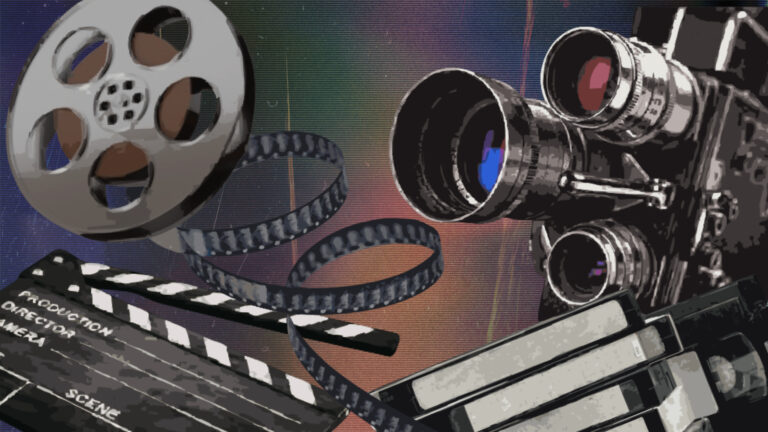Some Christians find it hard to justify reading fiction. If we invest precious time in reading books, shouldn’t we read non-fiction books on leadership, ministry, theology, apologetics, or cultural trends? Fiction can feel superfluous.
But human beings are creatures immersed in stories. From the stories we share in the office or around the dinner table, to the testimonies we share about our salvation or God’s work in the world through the gospel (the “good story”), our lives find their form in narrative. Fiction simply reflects the linearity and narrative structure of our earthly experience. And the best fiction does even more. The best stories exercise our discernment, cultivate our virtue, and provide the pleasure of discovery and illumination. This is one of the reasons I wrote my new book, On Reading Well.
Fiction reflects the linearity and narrative structure of our earthly experience. And the best fiction does even more.
But where do you start? Even in the category of “great books,” there are far more than most readers will ever have time to read. There are many works of fiction every Christian should read, but here are eight picks (in no particular order) you might start with.
1. Jane Eyre by Charlotte Bronte
Despite its title and popular reputation, this Victorian masterpiece by Charlotte Bronte is not a girly romance. It is, as I have written before, a powerful story of the individual’s modern quest to discern and heed one’s authentic calling and identity. And because the character of Jane is a Christian, her narrative about overcoming the obstacles to fulfilling her Christian calling is one every Christian reader—male or female—can relate to and learn from. The theme of the book can be found in Jane’s words at her greatest moment of conflict: “I need not sell my soul to buy bliss. I have an inward treasure born with me, which can keep me alive if all extraneous delights should be withheld, or offered only at a price I cannot afford to give.”
2. Incidents in the Life of a Slave Girl by Harriet Jacobs
Technically this is an autobiography. But because it uses a pseudonym and fictionalized names, it was treated as a novel for a long time. It is a lightly fictionalized, devastating account of a female slave who eventually escapes to New York after hiding in a garret for seven horrific years to escape further abuse. To read in her own words the story of one ordinary slave—one of millions of such tortured souls—is powerful and unforgettable in a way that even the many films on this subject cannot capture. “When a man is hunted like a wild beast he forgets there is a God, a heaven,” Jacobs writes. “He forgets everything in his struggle to get beyond the reach of the bloodhounds.” As true as this observation is, the plight of the female slave in particular is one that should make every Christian kneel in sorrow.
3. Fahrenheit 451 by Ray Bradbury
In re-reading this book recently, I was struck by Bradbury’s eerie prescience—not concerning the book burning at the center of his futuristic dystopia—but by his descriptions of the interactive, mind-numbing, soul-searing technology that takes the place of books, meaningful discourse, and human relationships. The novel is a timely reminder not just that books are important, but why they are. As one character says, “The good writers touch life often. The mediocre ones run a quick hand over her. The bad ones rape her and leave her for the flies.” Books, especially the best ones, require us to engage with life and to develop our ability to think and judge. We need to read more books and more of the good ones.
4. Heart of Darkness by Joseph Conrad
Joseph Conrad’s novella tells the story of a steamboat captain employed by a European trading company to take a boat up the Congo in search of one of the company’s most successful procurers of ivory. As we journey with Marlow into this “heart of darkness,” we discover a world that turns upside down European notions of “civilization” and “restraint.” (We also see a more skeptical view of colonization in the name of “missions” than most white Christians are taught.) The work shows that, absent external or internal checks, the heart of man is dark indeed, prompting the book’s most famous line: “The horror! The horror!” The fact that the story’s events and setting draw on the real-life atrocities committed by Belgium’s King Leopold II shows how truth can be more terrible than fiction—and why we should not turn away from either.
5. Crime and Punishment by Fyodor Dostoevsky
While Dostoevsky’s masterpiece is inarguably The Brothers Karamazov, Crime and Punishment is a shorter, more accessible novel that addresses some of the same themes in a more focused way. Dostoevsky was a Russian Orthodox Christian, and this novel, like most of his other works, is filled with Christian imagery and ideas. This story centers on a poor but arrogant Russian young man, Raskolnikov, who believes ordinary human laws and morals don’t apply to him. He tests this idea by committing an act of wanton murder. The story goes on to reveal with psychological and theological truth the power of guilt, confession, and redemption. Perhaps the crown of this book’s achievement is the role given to a lowly prostitute in Raskolnikov’s redemption and restoration.
6. Great Expectations by Charles Dickens
Along with Jane Eyre, this is one of my personal favorites. Dickens is a delightful writer whose sentences are brilliant and captivating. His plots and characters are surreal, unreal, and unforgettable, but if you don’t read Dickens for the sentences, then you aren’t reading him at all. This novel in particular captures many universal aspects of our loves and longings, our expectations and disappointments, and the way our character is revealed in all of these. Great Expectations centers on the orphan Pip’s desire to be a gentleman and the journey he must undergo in order to learn what a true gentleman is. With its decaying mansion, its prison ships, its blacksmith’s hearth, a cruel sister-in-law, and the poor little boy trying to navigate it all, Great Expectations is a textbook example of a work that combines instruction with delight.
7. Pride and Prejudice by Jane Austen
If your only exposure to Austen is from high-school English class, I urge you to give her another chance. Younger readers often miss the satirical voice that makes all the meaning in her works. Like Jane Eyre, this novel is far more than the sappy love story most film adaptations portray. Austen’s scalpel-like wit and subtle irony expose the everyday vices and follies of the privileged class in 19th-century England (which is surprisingly similar to most of us in 21st-century America). Austen has a keen sense of ethics and a well-developed Christian worldview. Pride and Prejudice brilliantly conveys the simple truth that we are all blinded by prejudices and burdened by self-pride.
8. ‘Revelation’ by Flannery O’Connor
Actually, I think everyone should read all of O’Connor’s short stories (as well as her other works). But because her stories are so odd and disorienting, I usually recommend this one as an entry point. O’Connor’s fiction almost always deals with her characters’ need for—and resistance to—saving grace. Usually it takes an unsettling event—even a violent one—to arouse the cultural Christians who populate her stories out of their complacency into a moment of recognition that leads to acceptance (or not) of that grace. As I explain in my chapter on this story in On Reading Well, it is often pride that gets in the way of our ability to receive grace, and nearly all of O’Connor’s stories point—in bizarre, unforgettable ways—to the antidote to pride, which is the virtue of humility.
Also in this series:
- 3 Classic Poems Every Christian Should Read (Leland Ryken)
“The Most Practical and Engaging Book on Christian Living Apart from the Bible”
 “If you’re going to read just one book on Christian living and how the gospel can be applied in your life, let this be your book.”—Elisa dos Santos, Amazon reviewer.
“If you’re going to read just one book on Christian living and how the gospel can be applied in your life, let this be your book.”—Elisa dos Santos, Amazon reviewer.
In this book, seasoned church planter Jeff Vanderstelt argues that you need to become “gospel fluent”—to think about your life through the truth of the gospel and rehearse it to yourself and others.
We’re delighted to offer the Gospel Fluency: Speaking the Truths of Jesus into the Everyday Stuff of Life ebook (Crossway) to you for FREE today. Click this link to get instant access to a resource that will help you apply the gospel more confidently to every area of your life.


































